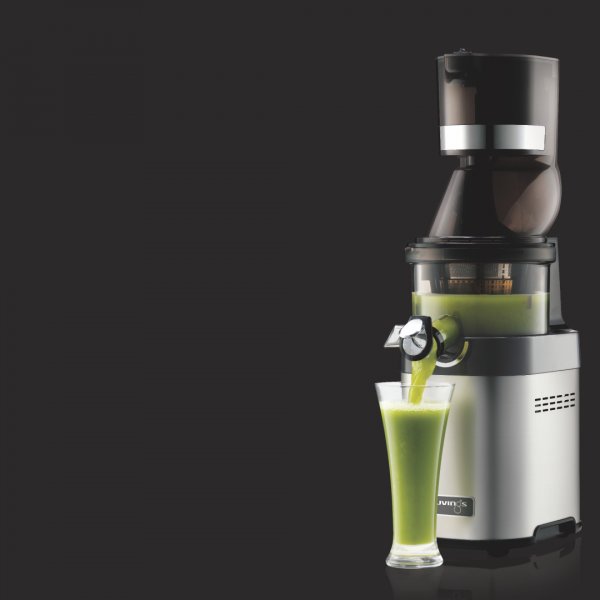
If traditional media and gossip is to be believed, Sri Lanka is in the perpetual throes of an influenza epidemic “affecting many thousands”.
Although official epidemiology unit reports do not seem to be available for the last two years, 2015’s report provides a less dramatic assessment. Accordingly, ”by the third week of May 2015, the Medical Research Institute has tested 220 samples positive for influenza”, which is significantly lower than the thousands quoted before (even when considered pro rata for the whole year).
Evidently, what people perceive to be seasonal flu is generally misunderstood, especially in its severity. Common colds are misdiagnosed. Additionally, seasonal influenza is often at its most rife at the same time as seasonal allergies, and the two are mistaken for each other.
So, for the purpose of clarity, here’s a brief overview of seasonal flu, seasonal allergies, the difference, and how to protect yourself against them.
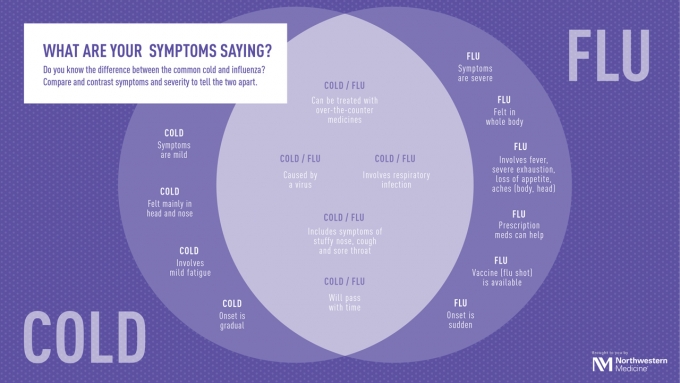
What are your symptoms saying? Image courtesy: Breakthroughs in Care
If It’s Influenza, You Will Know
Seasonal influenza is a serious illness that will dramatically debilitate a person. According to the World Health Organisation “seasonal influenza is characterized by a sudden onset of fever, cough (usually dry), headache, muscle and joint pain, severe malaise (feeling unwell), sore throat and a runny nose”.
However, these common symptoms can be experienced without someone necessarily having “the flu”.
What makes the influenza distinct from a common cold, apart from the severity of the symptoms, is a fever running less than 38 degrees celsius. If a temperature runs this low, then the human body is seriously unwell, perhaps with influenza, and can result in pneumonia.
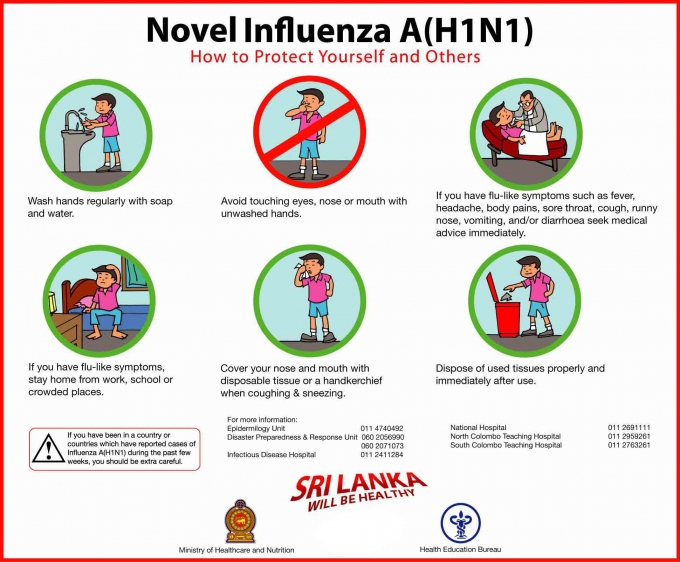
How to protect yourself and others from flu. Image Courtesy: Epidemiology Unit
What Makes It Seasonal?
For the last few years, in Sri Lanka, the seasonal flu has been observed during the hottest season—April to June—and in the cooler, months of November to January. Of course, the flu can occur throughout the year, but its ability to spread is magnified during these months.
As you would expect, it transmits from person to person when droplets containing the virus (typically from coughs and sneezes) infect another person in close proximity. Surfaces can become contaminated, too, such as door handles and computer and phone keyboards.
People may encounter the virus, however, and not fall ill. Their immune system kicks into gear and they can fight the germs. Persons at high risk, however, are pregnant women, the very young, the very old, and people with chronic underlying medical conditions such as cancer, diabetes, and heart diseases.
This is why we should all be extra mindful when visiting schools, nursing homes and hospitals.
The time from infection to illness, known as the incubation period, is about two days, but ranges from one to four days.
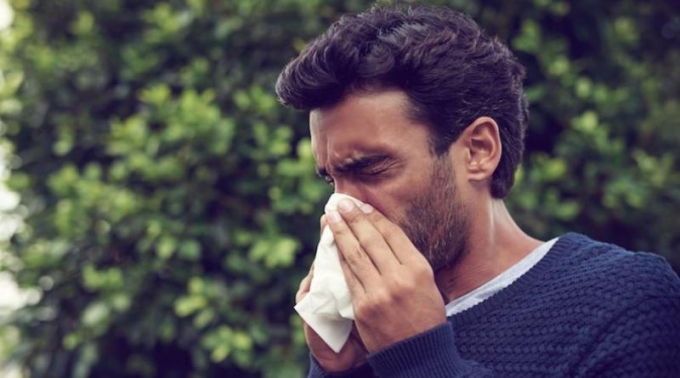
Keep tissues handy to catch your sneeze and dispose of them responsibility to avoid spreading influenza. Image courtesy: Medicos.lk
Maybe It Is A Seasonal Allergy
To be clear: allergies to foodstuffs such as shellfish or nuts, bee stings, or pharmaceutical medications are not seasonal. These are more severe and less common in type.
Rather, seasonal allergies are those caused by pollen, natural dust, and mould occurring in most houses, and animal dander—that is hair and feathers from a moulting pet. These are all seasonal and affect people at different times throughout the year.
Allergies like these are a result of the body’s immune system malfunctioning, or more precisely, overworking. Allergies occur when our immune system mistakes an otherwise harmless substance as an invader.
To counteract the misidentified invader, the immune system produce immunoglobulin E (IgE) antibodies. These antibodies travel to cells that release histamine and other chemicals, causing an allergic reaction. Typically, these symptoms will flare up in the nose, lungs, throat, sinuses, ears, or on the skin.
In Sri Lanka, the house dust mite is the most prevalent allergen in individuals with asthma and allergic rhinitis. Approximately 80% of allergy sufferers are allergic to the faeces of this insect, which is found in household dust.
There is a general sense (supported by Sri Lankan Annual Health Bulletin) that there has been a steady rise of people suffering with asthma, rhinosinusitis, and other seasonal allergy symptoms. Although no explicit study is available, many observers align this increase with pollution, especially for those living in busy cities.
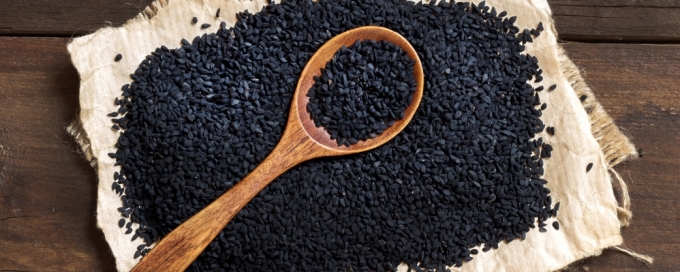
Black Seed Oil has been proved to be a natural defence against seasonal allergies and influenza. Image courtesy: 72.new.tv
Protection From Both
The best protection from seasonal flu is basic standards of hygiene. You should wash your hands regularly and disinfect frequently touched surfaces at home, work or school, especially when someone is ill.
We should all cover our mouths and noses when we cough or sneeze, and stay home when we feel unwell. It’s also best to get plenty of sleep, be physically active, manage stress, drink plenty of fluids, and eat nutritious food.
As seasonal allergies are very often airborne allergens they can be very difficult to avoid or protect against.
However, black seed oil is a curative medicine that has been found to have profound effect on allergies. And this is not some new superfood-esque fad, either. Numerous medical studies from reputable sources have found that black seed oil helps prevent and soothe against seasonal allergies because the oil has antihistamine properties.
The best way to use the oil is simply take up to half a teaspoon of the oil once a day.
Remarkably, because of black seed oils’ endless potential, it is also recommended to take black seed oil daily to boost your immune system to provide a natural defence against all illnesses and diseases, including seasonal flu, cancer, diabetes, and heart disease.
No wonder The Asian Pacific Journal of Tropical Biomedicine calls it a miracle herb.
Cover image courtesy: askdrshah.com

